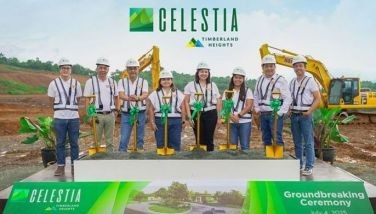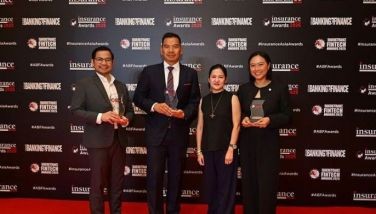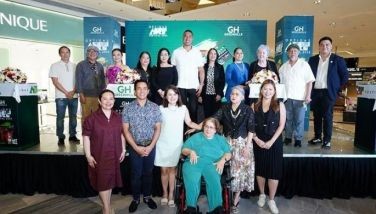Two insightful decisions of Marcos

Thirty-nine years after the imposition of martial law, the nation can begin to assess Ferdinand Marcos in more sober terms and follow him through some major events in our history. Below, I cite two major acts of Marcos which showed his deep insight into the nation’s needs.
“(1) The abbreviation of the US military bases agreement.” During the Vietnam War, President Lyndon Johnson of the United States had wanted the Philippines to commit military support to the war against the communists of Vietnam – the Viet Cong guerillas. Marcos, then a new president, read into the future with some clear idea of the odds. He did not want the country to be enmeshed in direct military conflict with a neighbor. He resisted the idea of Philippine military involvement in the war.
What Marcos agreed to do was to send an engineering battalion to help in public and civil works. Years later, he also refused the use of the Philippine military bases of the US as launching pad for the bombing of Vietnam.
Marcos persistently tried to secure national concessions from the US government to derive benefits from the military bases. He put into the consciousness of US policy makers that Spain and Turkey got a lot of economic assistance (or rentals) for the use of military bases and so, why not as much for the Philippines where bigger US military facilities were located?
His efforts were rewarded with the collection of economic development assistance and further direct payments (rents) in the form of economic support funds. He secured development assistance to build, among others, barrio roads and farm to market roads, school buildings, health facilities and electrification projects in the Central Luzon area as well as in the nation at large.
But the most important of the concessions that he extracted from the United States was the reduction of the 99-year military bases lease period signed upon the grant of independence to a shorter period. He was able to secure a reduction of the lease to 25 years after 1966, with the option of review of that lease agreement afterward. In this way, he forced the drawing of a timeline by which the country could review whether the military bases could continue beyond.
In 1991, the Philippine Senate rejected the recommendation of Mrs. Aquino to continue with the military bases agreement as that timeline was crossed. In effect, the lease agreement for the bases ended in 45 years after independence rather than the full 99 years!
Today, the former US military facilities are veritable zones of economic and industrial progress for the country: the Subic Freeport and Clark Economic Zone. Also, the country succeeded in reclaiming the US Naval station in Sangley Point, Cavite, which is today an export processing zone.
“(2) Grant of citizenship to Chinese residents, immigrants and their children born in the Philippines.” In 1974, China’s entry into the modern world was assured after a long period of isolation. US President Richard Nixon made a historic visit to Mao Zedung in China and this resulted in the return of China into the family of nations.
Marcos saw this as a major policy step for the diplomatic recognition of China. But instead of rushing to do this, Marcos decided to solve a major domestic problem first. This was to provide the mechanism to grant Filipino citizenship to a long line of Chinese residents, immigrants and children of these foreigners who had wanted to become citizens of the country since independence. The process was very slow, physically and emotionally wrenching for the applicants.
There was a long and tedious process of applying for citizenship. The country’s principle of citizenship by blood (jus sanguinis) did not recognize Chinese children born in the country by Chinese immigrants. A long process of proof and residence and qualification for citizenship, often became a fertile ground for corruption in the immigration bureau that managed the process.
Marcos thought deeply about the potential and dangerous consequences of having many Chinese residents who had long stayed in the country without any clear political allegiance. He felt that this predicament of Chinese residents in the country could nurture their different loyalties inimical to the national good causing them to gravitate toward a divided loyalty between the Kuomintang group based in Taiwan and the Chinese in the mainland. Marcos wanted them to have a home and a national identity. Chinese immigrants and the children that they have brought forth into the world have lived for many years in the country without the rights of citizens. They were thus residents without a country.
Marcos therefore issued a presidential decree (initially a letter of instruction) that made possible the possible conversion of these foreigners to Filipino citizens. Thus, he shortened the time to make Chinese residents and immigrants with appropriate documentation of their status to become citizens to become citizens. A top level committee was created to act speedily on approvals of the grant of citizenship.
The significance of this action to the country’s economic development is a fertile ground for future study. I can only say at this point – based on the evidence that we see in the domestic progress that we have enjoyed as a result of the integration of the ethnic Chinese Filipinos of recent citizenship – that it has been a very positive outcome. He gave many of these long time residents the opportunity to take advantage of the rights of citizenships in a country of their choice. Filipinos of Chinese heritage have been influential in raising the country’s commercial and industrial growth.
The addition of many new Chinese who had lived in the country to enjoy the rights of citizenship enabled new blood to assimilate in the country’s entrepreneurial gene pool. But without the foundation of this major act of wisdom, such prosperity as we experience today and will experience in the future will be so much smaller in scale as we know it today.
Because of restrictive economic policies on foreigners, these ethnic Chinese would have contributed less to the economic fabric of the nation. When they became Filipinos, they were able to unleash their energies to take advantage of opportunities available only to citizens and to help the nation in the process.
My email is: gpsicat@gmail.com. Visit this site for more information, feedback and commentary: http://econ.upd.edu.ph/gpsicat/
- Latest
- Trending


























